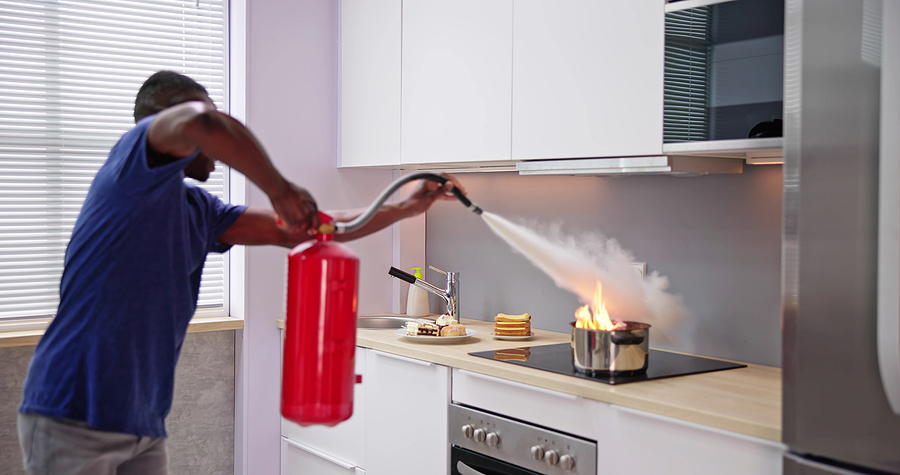
October is not only a month for pumpkins and falling leaves; it’s also Fire Safety Month, a time to raise awareness about the importance of preventing fires and staying safe in our homes. One of the most common causes of household fires is cooking accidents. As an insurance company committed to our client’s safety, we want to share some essential cooking safety tips to help protect your home and loved ones during Fire Safety Month and beyond.
One of the leading causes of kitchen fires is leaving cooking unattended. Whether you’re frying, baking, or simmering, always stay in the kitchen while cooking. If you need to leave the kitchen for any reason, turn off the stove or oven. A moment’s distraction can lead to disastrous consequences.
Here are some other important tips you should know:
- Keep Flammable Items Away
Ensure that any flammable items, such as paper towels, dish towels, oven mitts, and wooden utensils, are kept away from the stovetop and other cooking appliances. Loose clothing, especially long sleeves, should also be tucked in or avoided when cooking to prevent accidental contact with open flames.
- Use a Timer
Using a timer is a simple yet effective way to prevent overcooking or forgetting about your food altogether. Timers not only help ensure that your meals are cooked to perfection but also reduce the risk of fires caused by overheating.
- Keep a Fire Extinguisher Handy
Every kitchen should have a fire extinguisher within easy reach. Make sure it is rated for kitchen use and that you and your family members know how to use it. In case of a small grease fire, you can use a fire extinguisher to quickly suppress the flames. Remember the acronym PASS: Pull, Aim, Squeeze, and Sweep.
- Practice Safe Stovetop Cooking
When cooking on the stovetop, especially when using oil for frying, follow these guidelines:
- Use a deep fryer thermometer to monitor the oil’s temperature and prevent it from overheating.
- Never throw water on a grease fire. It can cause the flames to flare up. Instead, cover the pot with a lid or use a fire extinguisher.
- If a pan catches fire, slide a lid or another non-flammable object over it to smother the flames. Turn off the heat source.
- Maintain a Clean Kitchen
Regularly cleaning your kitchen can help prevent fires. Grease buildup on stovetops and in ovens can ignite when exposed to high temperatures. Keep your kitchen appliances clean and free from food residue and grease.
- Check Your Smoke Detectors
Smoke detectors are your first line of defense against fires. Make sure you have smoke detectors installed in key areas of your home, including the kitchen. Test them monthly, replace the batteries annually, and replace the detectors themselves every ten years.
- Have a Fire Escape Plan
In case a fire does occur, it’s crucial to have a fire escape plan in place. Ensure that everyone in your household knows the escape routes and where to meet outside in case of a fire emergency. Practice fire drills regularly to ensure everyone is prepared.
- Be Cautious with Appliances
Appliances like toasters, microwaves, and coffee makers can also pose fire hazards. Always follow the manufacturer’s instructions for proper use and maintenance. Avoid overloading electrical outlets, and unplug appliances when they’re not in use.
Cooking safety is a fundamental aspect of fire prevention in your home. By following these cooking safety tips and practicing caution in the kitchen, you can significantly reduce the risk of kitchen fires and protect your loved ones and property.
Fire Safety Month serves as a reminder that fire prevention is a year-round commitment. Stay safe, and remember that your safety is our top priority. If you have any questions about your home insurance coverage or fire safety, don’t hesitate to reach out to us.
